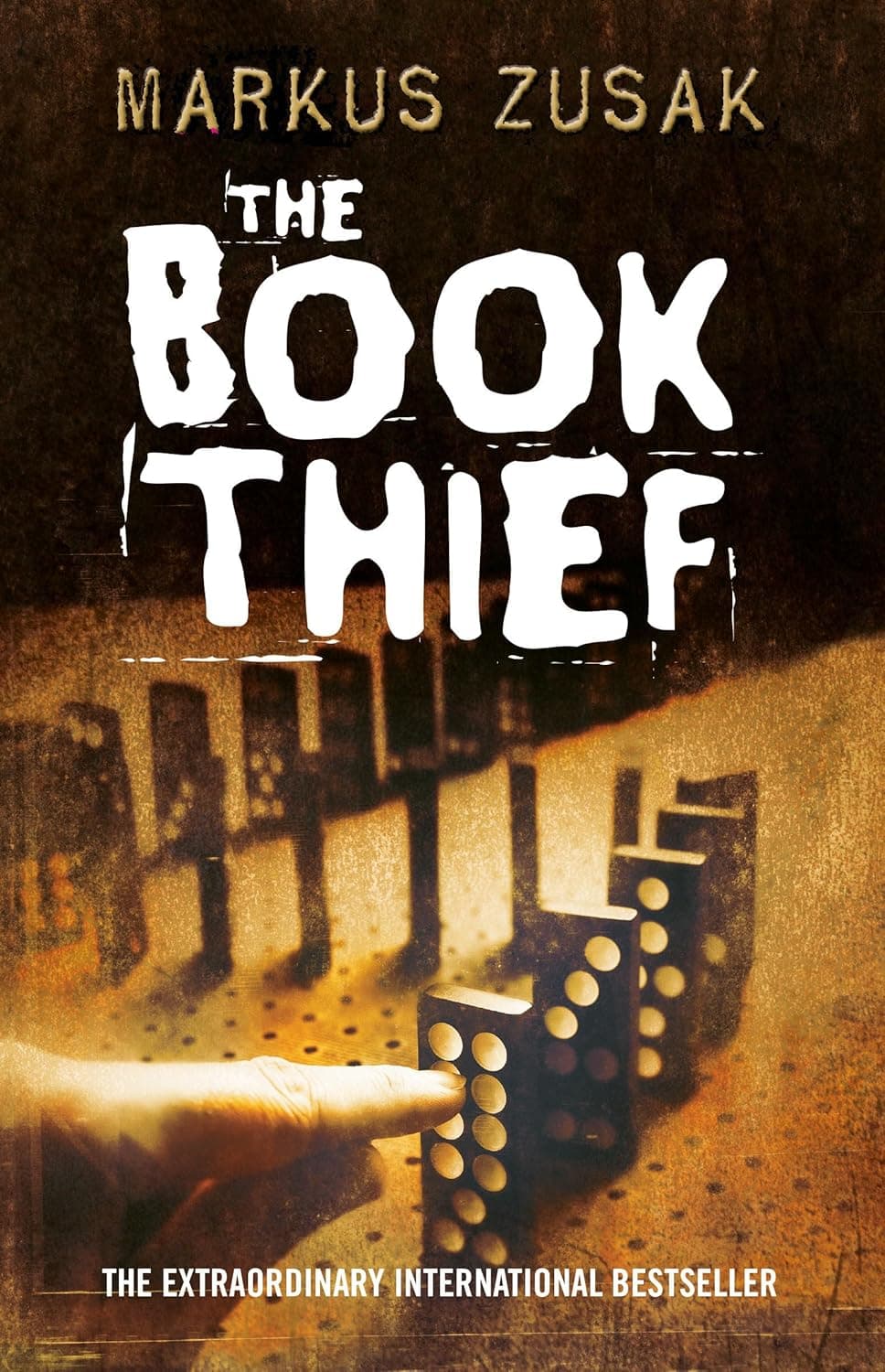
Review summary
This spoiler free review of The Book Thief by Markus Zusak walks through why this historical fiction read that a novel still hooks readers. Narrated by Death, this World War II story follows young Liesel Meminger as she discovers the redemptive power of words amidst profound loss and danger.
Full review
The Book Thief by Markus Zusak is narrated by Death, which sounds like a gimmick until you settle into the voice. Watching young Liesel Meminger grow up in Nazi Germany through this weary, wry observer gives the story a strange mix of distance and deep tenderness. The opening chapters sketch out loss and dislocation, then slowly make space for friendship, books, and stolen moments of joy.
Looked at closely, the novel is obsessed with who tells stories and why. Liesel's reading lessons with Hans, her secret library visits, and her bond with Max turn books into both shelter and quiet rebellion. Official propaganda blasts from radios and loudspeakers, but handwritten stories and shared readings around a kitchen table end up carrying more weight inside the Hubermann household.
The supporting cast gives the book much of its staying power. Rosa's sharp tongue hides a fierce, practical love, Rudy's loyalty and stubbornness cut through some of the darkest scenes, and even Death admits to being moved by this small human circle. Taken together, these relationships turn a familiar World War II backdrop into something more intimate: a reminder that history is built from individual lives, not just dates and headlines.
A narrator unlike any other
Death's commentary is unexpectedly compassionate, mixing dry humour with blunt honesty about war and loss.
Zusak structures the story as small, linked scenes, using foreshadowing in a way that builds tension even when you know roughly what history will do.
Themes that stay with you
The power of words and stories to comfort, resist, and sometimes wound.
How chosen family, friendship, and small acts of kindness can push back against a brutal regime.
Key ideas
- Words and stories can become both sanctuary and quiet resistance.
- Chosen family can feel as binding and important as blood ties.
- Witnessing individual lives matters, especially when history tries to erase them.
If you liked this, read next
FAQ
- What is The Book Thief about?
- The Book Thief follows Liesel Meminger, a girl growing up in Nazi Germany, as she discovers the power of words while living with her foster parents and hiding a Jewish man in their basement. Narrated by Death, it is a historical fiction novel that focuses on small acts of courage in the middle of a vast, violent war.
- Who will enjoy The Book Thief?
- Readers who like character driven historical fiction, unusual narrators, and stories about found family will likely connect with this book. It works well for thoughtful teen readers and adults alike.
- What themes stand out in The Book Thief?
- The novel explores how language can be twisted for harm or used to comfort and resist, what it means to stand by the people you love when it is dangerous, and why remembering individual stories matters in times of atrocity. It sits with these questions instead of offering simple answers.
- Is there anything to know before starting The Book Thief?
- The tone can be heavy at times, given the setting and subject matter, but there are also warm, funny, and gentle moments. It is not a fast, plot driven thriller, so it helps to be in the mood for a slower, emotionally rich read.
Reader-focused angles
This review intentionally answers longer questions readers often ask, such as the book thief by markus zusak plot summary and themes of death, words and war, the book thief age recommendation, emotional content and who should read it, books like the book thief for fans of moving historical fiction, and the book thief characters, narrative voice and discussion questions, so the guidance fits naturally into the analysis instead of living in a keyword list.
Each section of the review is written to speak directly to those searches, making it easier for book clubs, educators, and new readers to find the specific perspectives they need.
As an Amazon Associate, I earn from qualifying purchases.